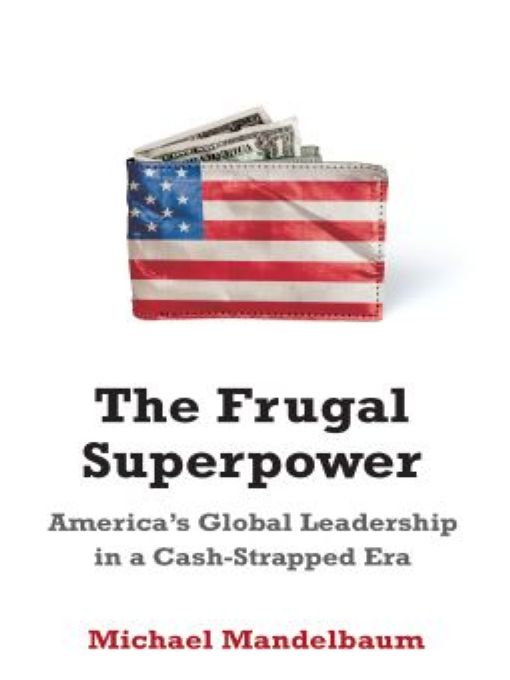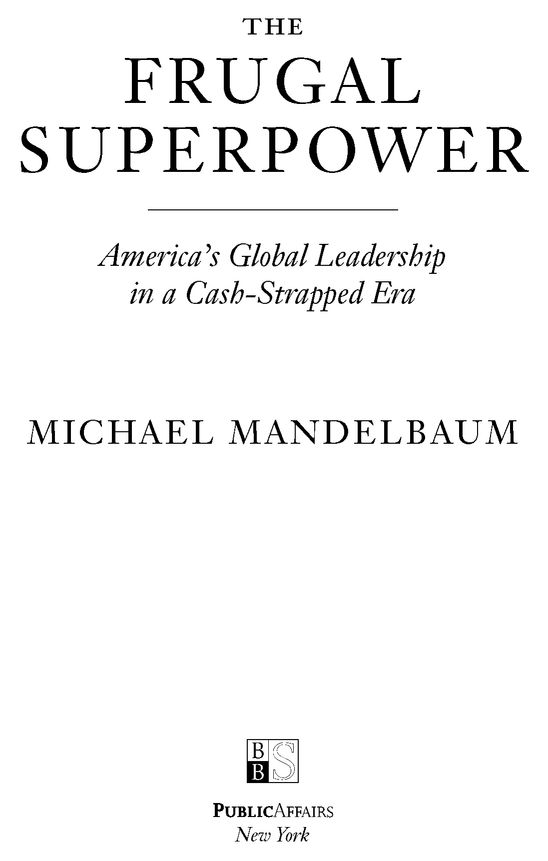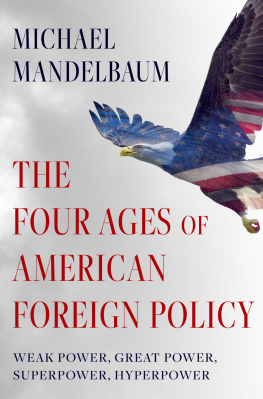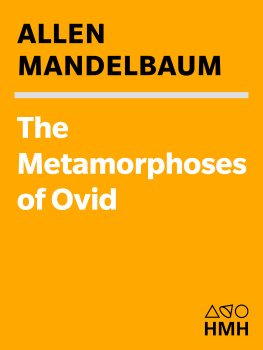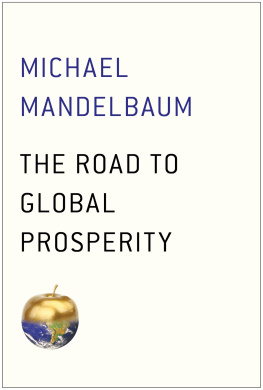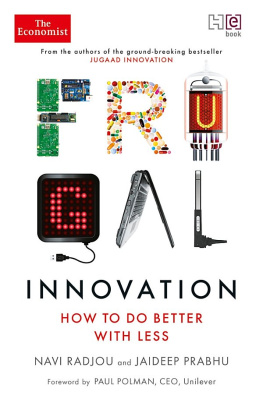Table of Contents
ALSO BY MICHAEL MANDELBAUM
The Nuclear Question: The United States
and Nuclear Weapons, 19461976 (1979)
The Nuclear Revolution: International
Politics Before and After Hiroshima (1981)
The Nuclear Future (1983)
Reagan and Gorbachev (coauthor, 1987)
The Fate of Nations: The Search for
National Security in the Nineteenth
and Twentieth Centuries (1988)
The Global Rivals (coauthor, 1988)
The Dawn of Peace in Europe (1996)
The Ideas That Conquered the World: Peace, Democracy,
and Free Markets in the Twenty-first Century (2002)
The Meaning of Sports: Why Americans Watch Baseball,
Football, and Basketball and What They See
When They Do (2004)
The Case for Goliath: How America Acts as the Worlds
Government in the Twenty-first Century (2006)
Democracys Good Name: The Rise and Risks of the Worlds
Most Popular Form of Government (2007)
To my esteemed colleague,
Fouad Ajami,
and to his friend and my beloved wife,
Anne Mandelbaum.
ACKNOWLEDGMENTS
The Frugal Superpower began as an address on the future of American foreign policy to the New York Alumni Club of the Johns Hopkins University School of Advanced International Studies (SAIS) on November 13, 2008. I am grateful to the SAIS Development Office and to the Schools New York alumni for making it possible and to Lee Kempler for playing host to the event. I developed some of the themes of this book in a talk to the staff of Baraboo Growth LLC in Milwaukee on March 31, 2009. I am indebted to the firms president, Richard Strong, for the invitation and for his hospitality.
This is my fifth book with PublicAffairs. As with the previous four, I owe a great deal to its founder and editor-at-large, Peter Osnos, not least for having, as he did with the other four, thought of the title for this one. I am grateful to the president of PublicAffairs, Susan Weinberg, and especially to Clive Priddle, whose editorial suggestions substantially improved the manuscript. Melissa Raymond, Meredith Smith, and Antoinette Smith supervised the books production and Jaime Leifer expertly managed the publicity for it.
Once again I am happy to express my thanks to my peerless agent, Morton L. Janklow, for his wise counsel. I benefitted from conversations on the subjects addressed in these pages with Thomas L. Friedman of The New York Times and James Klurfeld of the State University of New York at Stony Brook. My greatest debt, as always, is to my wife, Anne Mandelbaum, for her intellectual stimulation, her matchless editorial judgment, her enthusiastic encouragement, her unwavering support, and her love.
INTRODUCTION
On December 1, 2009, Barack Obama, the forty-fourth American president, delivered a speech at the U.S. Military Academy at West Point, New York. The purpose of the speech was to announce the dispatch of 30,000 additional troops to Afghanistan, where American armed forces had been fighting since 2001. In this sense, the address was an exercise in continuity: all of Obamas predecessors over seven decades, beginning with the thirty-fifth president, Franklin D. Roosevelt, had had occasion to send American military personnel to distant lands.
Yet Obamas remarks, properly understood, marked a sharp and momentous break with the pattern Roosevelt established and all of his successors followed. For even as he ordered the troops to Afghanistan Obama sought to place limits on the duration of their stay and the mission they would be carrying out, and he made it clear that the reason for these limits was that America could not afford to do more. The most important theme of his remarks was the acknowledgment of economic constraints on American foreign policy, a theme very seldom heard from an American president since Roosevelt took the United States into World War II.
Obama rejected goals that are beyond what can be achieved at a reasonable cost. He invoked the connection between our national security and our economy. He cited the need to rebuild our strength here at home. The only president he quoted was Dwight Eisenhowerof all the chief executives since Franklin Roosevelt the one most committed to limiting the costs of American foreign policyand the words of Eisenhowers that he cited, which referred to national security policy, were these: Each proposal must be weighed in the light of a broader consideration: the need to maintain balance in and among national programs.
As if to emphasize Obamas message of economic constraints on foreign policy, the congressional opponents of adding to American troop strength in Afghanistan proposed a special war tax to pay for it. The war was being funded by borrowed money, and its opponents understood that if the American public had to pay for it directly and immediately, out of their own pockets, they might well refuse to do so.
While the economic limits to which Obama referred will directly affect the foreign policy of the United States, their ultimate impact on the rest of the world is likely to be, if anything, even greater. As the president noted at West Point, More than any other nation, the United States of America has underwritten global security for six decades. Other countries have come to depend on a robust, ambitious, and extensive American foreign policy. The impending economic constraints will place in jeopardy the global tasks that the United States has performed since the 1940s; and what the United States has done has contributed greatly to global peace and prosperity.
When Barack Obama was elected in 2008 he and his supporters expected that his presidency would transform the United States. In one way, at leastbut not in a way that so many hopedthat will be the case. Mounting domestic economic obligations will narrow the scope of American foreign policy in the second decade of the twenty-first century and beyond. Because the United States will have to spend so much more than it has in the past on obligations at homeparticularly caring for the ever increasing ranks of its older citizensit will be able to spend less than in the past on foreign policy. Because it will be able to spend less, it will be able to do less. Just what the United States will and will not do will be the most important issue in international relations in the years ahead. It is the subject of The Frugal Superpower.
The books first chapter describes the growing claims on the American budget. They stem not only from the cost of coping with the financial meltdown of 2008 and the subsequent recession but also, and above all, from the expenses of the countrys entitlement programs, Social Security and Medicare, which will rise rapidly to historic highs with the retirement of the baby boom generation of Americans born between 1946 and 1964.
Two aspects of the pressure to cut back on foreign policy expenditures that these rapidly mounting domestic costs will exert are particularly notable, and Chapter Two spells them out. First, while they may be normal for most countries most of the time, serious economic constraints on foreign policy did not affect the United States for almost seven decades before 2008. Second, such constraints will affect not only the United States but the entire world because the United States has played an historically unprecedented global role, functioning as the worlds de facto government. In an era of scarcity for American foreign policy, the world will get less governance.

